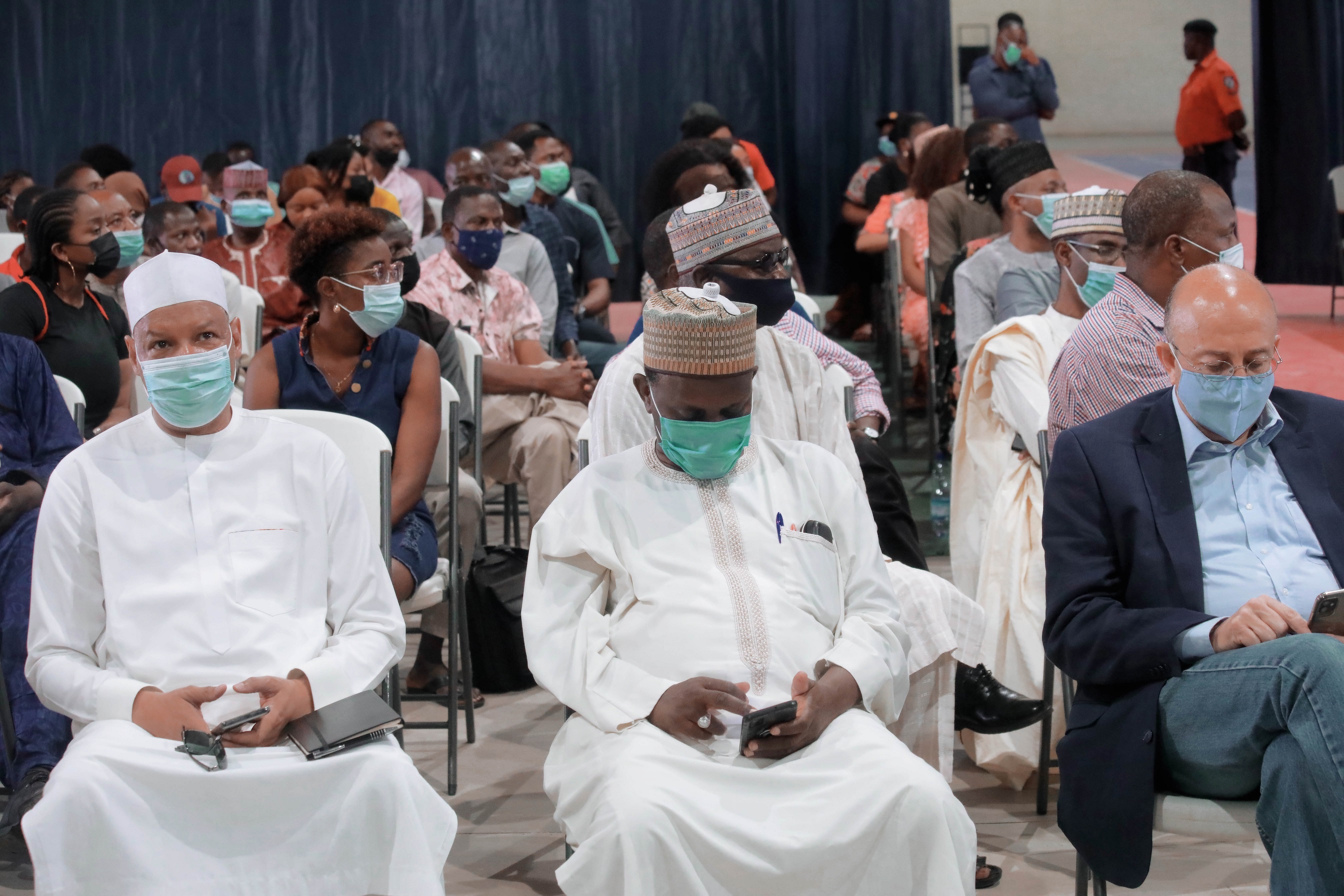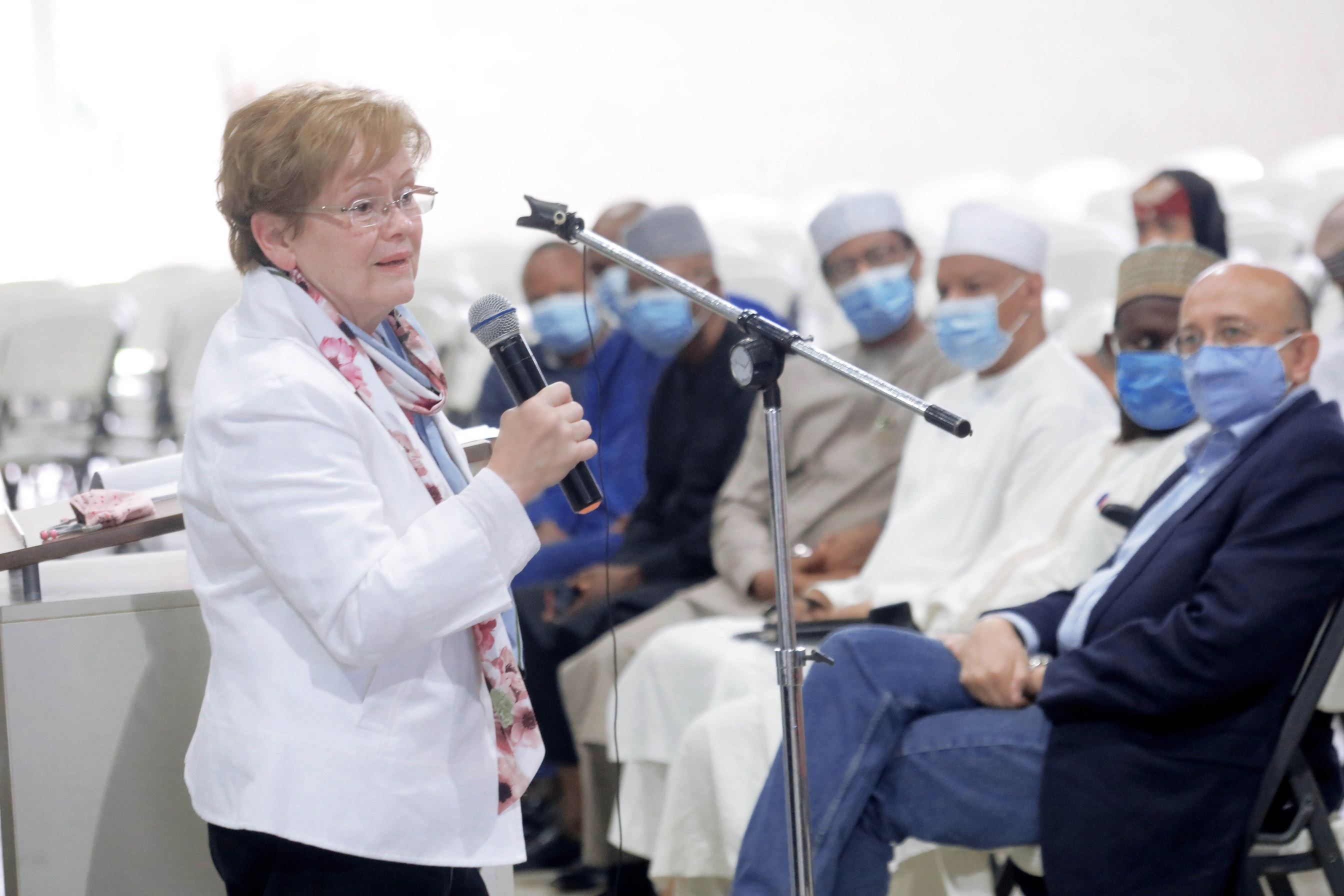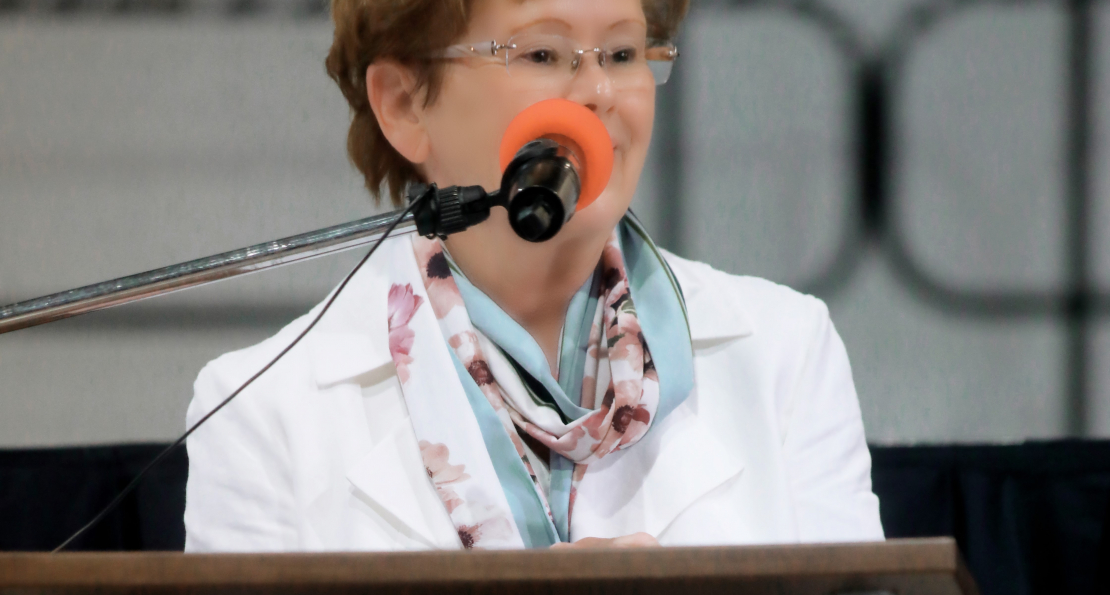In her maiden town hall meeting since returning as President, Dr. Margee Ensign urged students, faculty and staff to refocus on our mission in Yola. At the packed in-person meeting where she took a few questions from the floor, President Ensign reminded the AUN community why it is vital that the AUN project succeeds and why failure cannot be an option.
We are here in Yola at AUN to ensure that our students have the knowledge and skills needed to solve these problems and lead Nigeria, the continent and the world. Nigeria already is a regional power. Because of its rapid population growth, it will be a global leader in the second half of this century. What kind of leader? What will Nigeria stand for?
At AUN, we have the opportunity and the profound responsibility to ensure that our graduates are ready for these challenges and will lead Nigeria to build a sustainable, more democratic and equitable society. The foundation of this new world is widespread, equitable access to education.
The President was happy to be back, to return to familiar and new faces and to contribute to the unfinished business of building AUN into the University of choice for young Africans seeking an opportunity to realize their dreams and the challenge of social change. She thanked everyone for their contributions, adding that AUN is unique because of the passion for excellence of its students and the demonstrated commitment of its highly qualified faculty and staff.
The Future is here

President Ensign identified five global trends central to the AUN mission and philosophy and challenged everyone in the community to live each day thinking about and finding solutions to the challenges they present, to commit to making the world a much better place, starting here in our local community.
"Many friends have asked me. 'Why are you going back to Nigeria?' Aside from my many personal connections, my many friendships here, the simple answer is that in the near future, Nigeria will be recognized as enormously important in our rapidly changing world. So, what happens here-- matters. The future is here”.
The President pointed to a fundamental change in world demographics; the ever-increasingly central role of education; the crucial impact of new technologies; the confrontation of democracy and dictatorship, and the stark reality of global climate change. She challenged the AUN community members to figure for themselves where Nigeria fits in this global picture, what role should she play, and what is to be done?
President Ensign identified education as the central theme linking the problems bedevilling the world and their solutions, the driver of social change.
Nigeria currently has more children out of school than any other country in the world.
This is due to rapid population growth, and in part, it is due to political priorities. Why aren't there enough schools? Why aren't there enough teachers? Why are so many children illiterate and innumerate? What is to be done? Part of the answer to that question—and we know this because we have been doing it here at AUN and in our region—is to utilize new digital technologies to provide education in cost-effective and innovative ways.
Our next global trend is the life-changing impact of new technologies.
Here at AUN, with our superb digital library and IT, we continued teaching in the pandemic using "Zoom" and other digital technologies. All over the world, we have discovered that we can now teach in new and economical ways. But of course, we must continue such educational-technological innovations. We must have the will and resources to implement them. But it is governments that must be willing to spend the money. How about here in Nigeria?
Which brings us to the fourth global trend, the disturbing rise of authoritarian political movements and unaccountable dictatorships--even, I have to say, in my own country.
Democracy and free societies allow people the room and the creativity to improvise, to innovate, to come together to create new solutions to the many challenges we are all confronting. They value the rule of law, human rights, free and fair elections, unfettered media, trust in their own people. But democracies are difficult and demanding, and they call for an educated populace, not an illiterate one. A population that believes in freedom. A population that truly understands the real challenges we all face.
None of those challenges compares, really, to global climate change.

Sitting on the southern edge of the encroaching Sahara, we at AUN cannot avoid a daily reminder of the existential threat that we, all of us, have brought upon the world. We are told that we now have 30-40 years to come up with sustainable solutions and policies. That's not a long time, and it won't be cheap and easy. But, solutions, I am convinced, will require an educated and informed public and freedom of thought and action.
As their contribution, a section of students, faculty and staff offered their best wishes for the success of the returning President and raised a few questions and suggestions, which President Ensign promised to address with some urgency.


